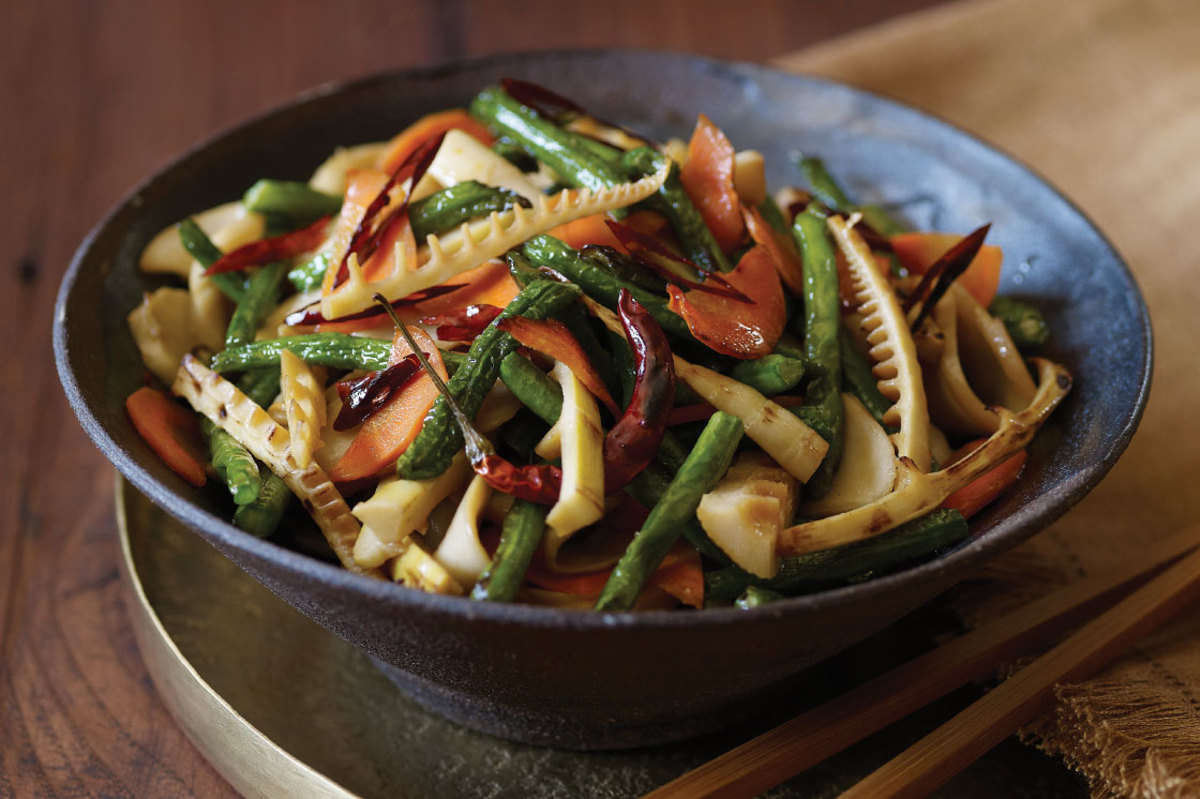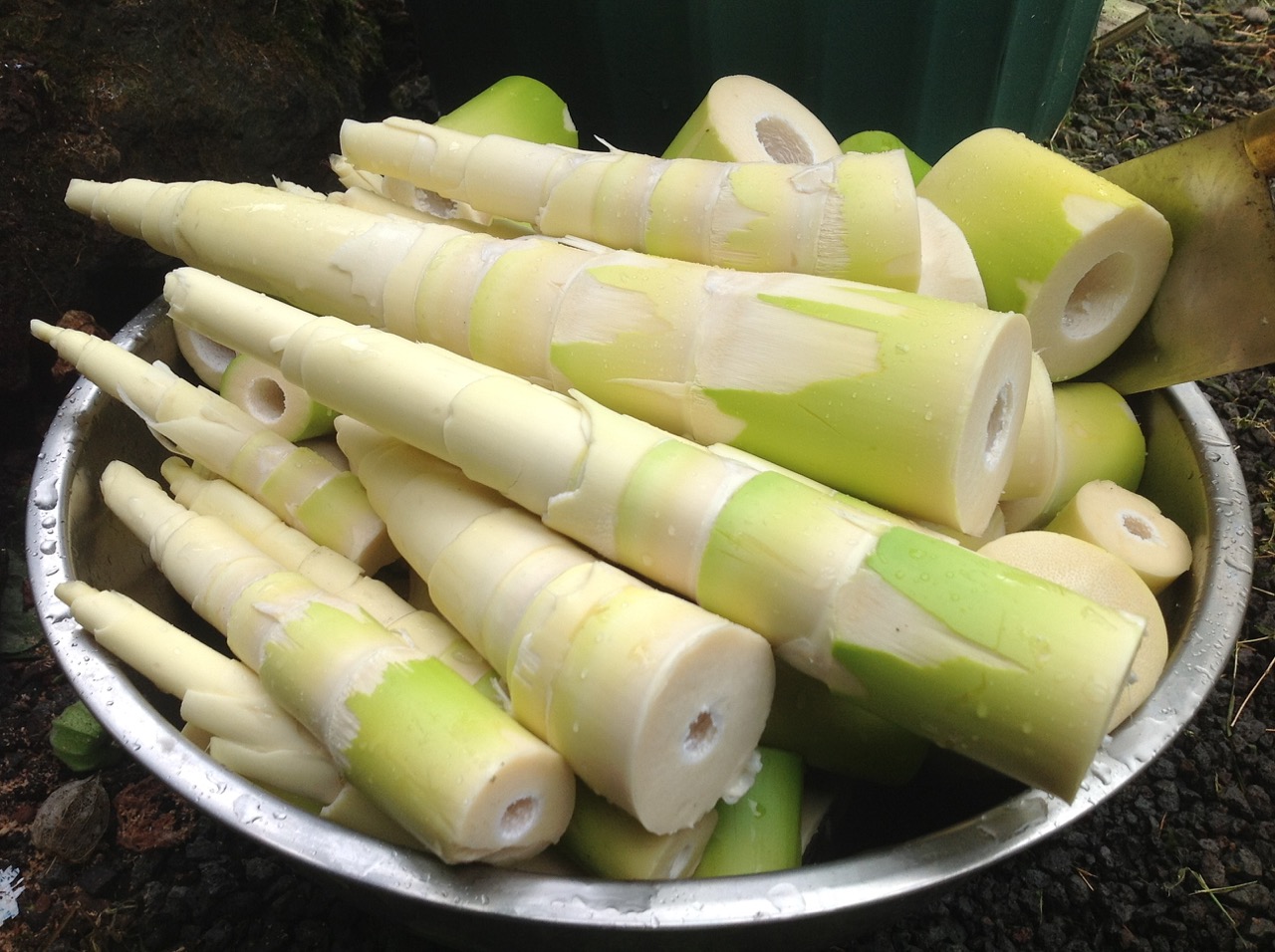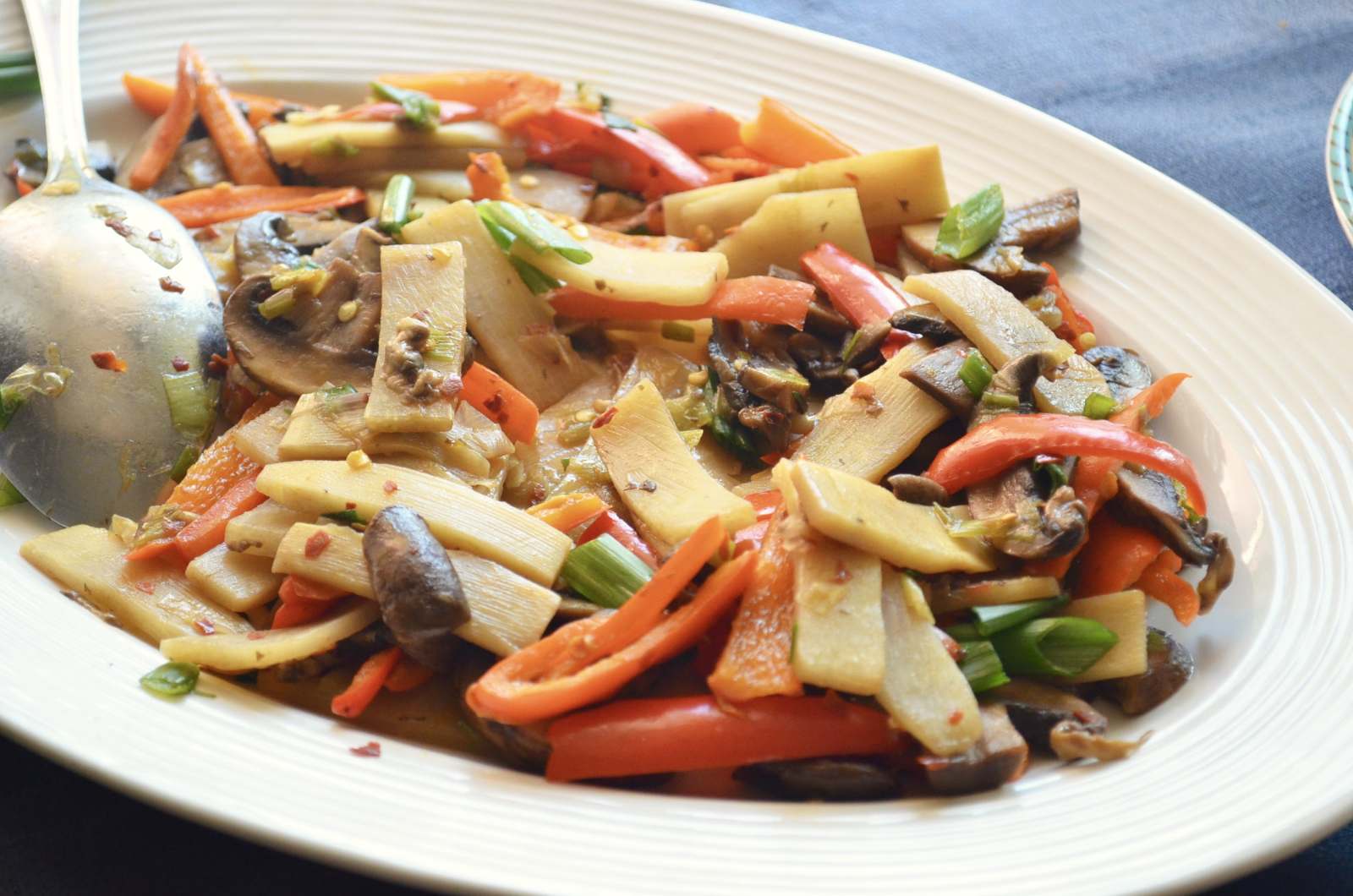Embark on a tantalizing culinary journey with bamboo food, a versatile and nutritious plant-based delicacy. From its nutritional prowess to its diverse culinary applications, bamboo food offers a unique and sustainable dining experience.
Dive into the nutritional depths of bamboo shoots, exploring their rich composition of macros, vitamins, and minerals. Discover the unique properties that set bamboo food apart from its plant-based counterparts, making it a true nutritional gem.
Nutritional Value of Bamboo Food

Bamboo shoots, the edible young shoots of bamboo plants, are a nutritional powerhouse. They offer a unique blend of macros, vitamins, and minerals that sets them apart from other plant-based foods.
Bamboo shoots are low in calories and fat, making them a great option for weight management. They are also a good source of dietary fiber, which can help regulate digestion and promote satiety.
Macronutrients
- Carbohydrates:Bamboo shoots are a good source of carbohydrates, providing about 12 grams per cup. These carbohydrates are primarily in the form of starch, which is a complex carbohydrate that provides sustained energy.
- Protein:Bamboo shoots are also a good source of protein, providing about 3 grams per cup. This protein is incomplete, meaning it does not contain all the essential amino acids. However, it can be combined with other plant-based proteins to create a complete protein source.
- Fat:Bamboo shoots are very low in fat, with less than 1 gram per cup. The fat that is present is mostly unsaturated, which is the healthier type of fat.
Vitamins and Minerals
- Vitamin C:Bamboo shoots are a good source of vitamin C, providing about 10% of the daily recommended value per cup. Vitamin C is an important antioxidant that helps protect the body from damage caused by free radicals.
- Potassium:Bamboo shoots are also a good source of potassium, providing about 10% of the daily recommended value per cup. Potassium is an important mineral that helps regulate blood pressure and heart function.
- Iron:Bamboo shoots are a good source of iron, providing about 6% of the daily recommended value per cup. Iron is an important mineral that helps transport oxygen throughout the body.
Culinary Applications of Bamboo Food

Bamboo shoots, with their distinct flavor and crunchy texture, have found their way into various cuisines worldwide. They are a versatile ingredient, adding a unique touch to both traditional and modern dishes.
In Asian cuisines, bamboo shoots are a staple ingredient in stir-fries, curries, and soups. Their mild, slightly sweet flavor complements a range of spices and sauces. In Thailand, for instance, bamboo shoots are an essential component of the popular dish Pad Thai.
Incorporating Bamboo Food into Recipes
Bamboo food offers endless culinary possibilities. Here are some creative ways to incorporate it into your cooking:
- Add sliced bamboo shoots to stir-fries for a crunchy texture and a hint of sweetness.
- Incorporate bamboo shoots into salads for a refreshing and nutritious addition.
- Use bamboo shoots as a substitute for asparagus in soups and stews.
- Experiment with bamboo shoot pickles as a tangy condiment or side dish.
Whether you are a seasoned chef or a home cook looking for new culinary adventures, bamboo food offers a unique and versatile ingredient to elevate your dishes.
Health Benefits of Bamboo Food

Bamboo food offers a range of potential health benefits due to its unique nutritional composition and bioactive compounds. Scientific research has highlighted the positive effects of bamboo food on digestive health, inflammation, cardiovascular function, and antioxidant and antimicrobial activity.
Digestive Health
Bamboo shoots are rich in dietary fiber, which plays a crucial role in promoting digestive health. Fiber helps regulate bowel movements, prevent constipation, and support a healthy gut microbiome. The prebiotic properties of bamboo fiber stimulate the growth of beneficial bacteria in the digestive tract, further enhancing digestive function.
Anti-Inflammatory Properties
Bamboo food contains several compounds with anti-inflammatory properties. These compounds, such as flavonoids and phenolic acids, have been shown to reduce inflammation throughout the body. Bamboo shoots, in particular, have been found to inhibit the production of inflammatory cytokines, offering potential benefits for conditions such as arthritis and inflammatory bowel disease.
Cardiovascular Function
Bamboo food has been linked to improved cardiovascular health. The presence of dietary fiber in bamboo shoots helps lower cholesterol levels by binding to bile acids and preventing their reabsorption into the bloodstream. Additionally, bamboo food contains antioxidants that protect against oxidative damage to blood vessels, reducing the risk of cardiovascular disease.
Antioxidant and Antimicrobial Properties
Bamboo food is a rich source of antioxidants, which protect cells from damage caused by free radicals. Antioxidants in bamboo food include flavonoids, phenolic acids, and vitamin E. These compounds help neutralize free radicals, reducing the risk of chronic diseases such as cancer and heart disease.
Moreover, bamboo food exhibits antimicrobial properties against various bacteria and fungi. This antimicrobial activity is attributed to the presence of compounds like phenols, flavonoids, and alkaloids, which inhibit the growth and proliferation of microorganisms.
Sustainable Cultivation of Bamboo Food
Bamboo is renowned for its remarkable growth rate and low environmental impact, making its cultivation highly sustainable. This rapid growth rate reduces the time required to harvest, allowing for more frequent crop cycles. Moreover, bamboo requires minimal fertilizers and pesticides, minimizing its ecological footprint.
Sustainable farming practices that promote the growth of bamboo for food production include:
Intercropping and Agroforestry
- Intercropping bamboo with other crops, such as legumes or vegetables, improves soil fertility and biodiversity.
- Agroforestry systems, where bamboo is integrated with trees or livestock, provide additional income streams and enhance ecosystem services.
Water Conservation
- Bamboo’s extensive root system helps retain soil moisture, reducing water requirements.
- Mulching around bamboo plants helps conserve water and suppress weeds.
Economic and Social Benefits, Bamboo food
Bamboo cultivation offers significant economic and social benefits in various regions:
- Provides a sustainable source of income for farmers and rural communities.
- Creates employment opportunities in harvesting, processing, and marketing bamboo products.
- Supports local industries, such as handicrafts, construction, and furniture making.
Cultural Significance of Bamboo Food
Bamboo food holds a deep cultural significance in numerous societies around the world, woven into the fabric of traditional dishes and cultural practices. Its versatility and nutritional value have made it an integral part of cuisines and customs across continents.
In Southeast Asia, bamboo shoots are a staple ingredient in many traditional dishes, such as the Burmese fermented bamboo shoot salad mohinga, the Indonesian spicy bamboo shoot dish gudeg, and the Thai bamboo shoot soup tom kha gai. Bamboo shoots are also used in various cultural rituals and festivals, symbolizing fertility, prosperity, and good fortune.
India
In India, bamboo shoots are known as “bans ka panja” and are used in a variety of dishes, including curries, stir-fries, and pickles. They are particularly popular in the northeastern states of Assam and Arunachal Pradesh, where they are often cooked with pork, fish, or chicken.
China
In China, bamboo shoots have been used for centuries and are considered a delicacy. They are often used in soups, stir-fries, and steamed dishes. Bamboo shoots are also a popular ingredient in traditional Chinese medicine, where they are believed to have cooling and detoxifying properties.
Japan
In Japan, bamboo shoots are known as “takenoko” and are used in a variety of dishes, including sushi, tempura, and miso soup. They are also a popular ingredient in traditional Japanese tea ceremonies.
User Queries
What are the key nutritional benefits of bamboo food?
Bamboo food is rich in fiber, vitamins, and minerals, including potassium, magnesium, and iron. It is also a good source of antioxidants and has anti-inflammatory properties.
How can I incorporate bamboo food into my diet?
Bamboo shoots can be added to stir-fries, soups, salads, and curries. They can also be pickled or fermented for a tangy flavor.
Is bamboo food sustainable?
Yes, bamboo is a highly sustainable crop. It grows quickly and requires minimal water and fertilizer. Bamboo cultivation can also help prevent soil erosion and improve air quality.
